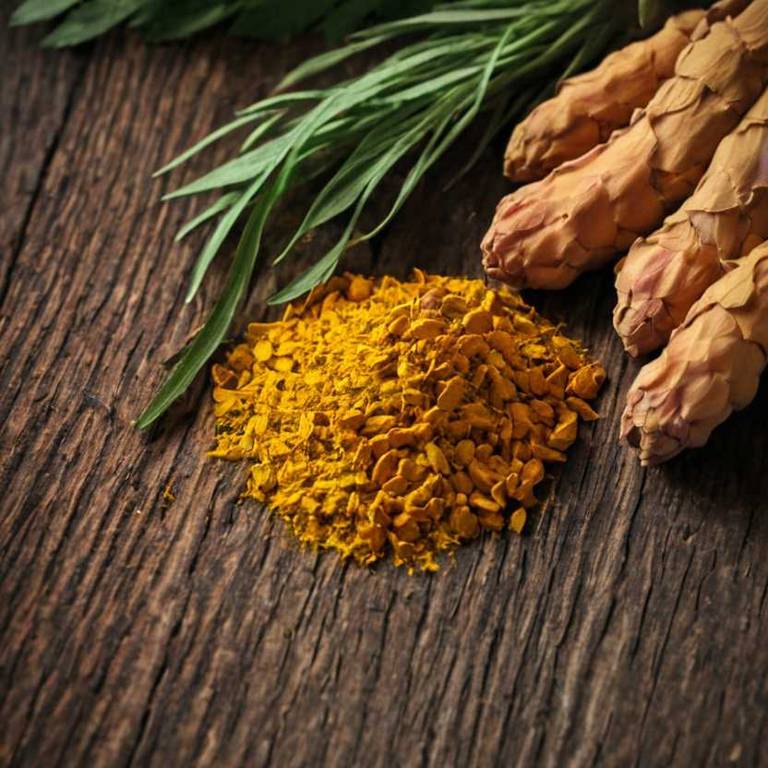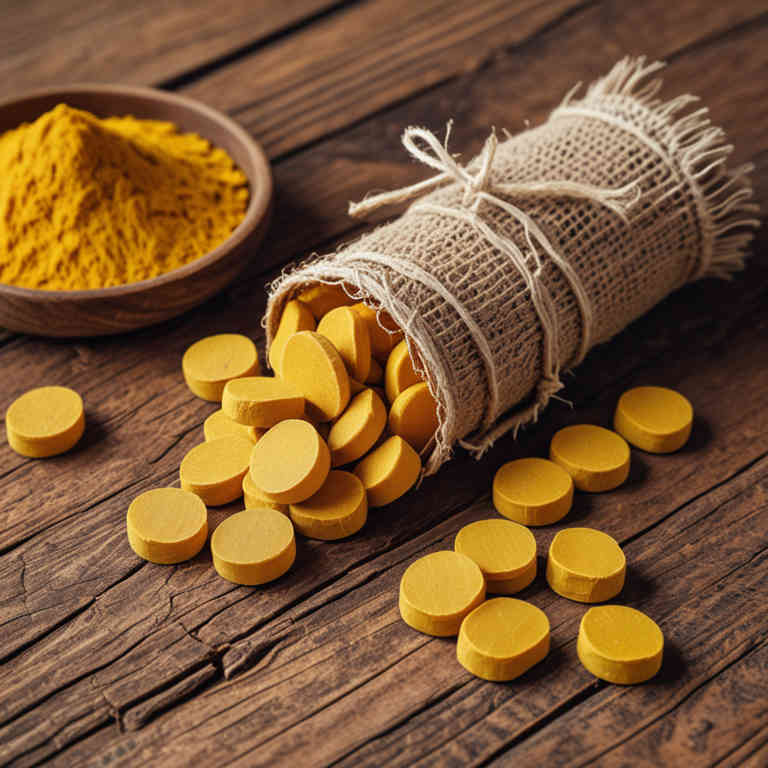10 Best Curcuma Longa Preparations

The best medicinal preparations of Curcuma longa are teas, decoctions, tinctures, capsules, and creams, each offering unique benefits for health and wellness.
Teas and decoctions are commonly used to harness the anti-inflammatory and antioxidant properties of curcumin.
Tinctures provide a concentrated form for quicker absorption, while capsules offer a convenient and standardized dosage.
Topical creams are often used for muscle pain and skin conditions due to their soothing effects.
These diverse preparations highlight the versatility of Curcuma longa in traditional and modern herbal medicine.
Below there's a list of the 10 best herbal preparations of curcuma longa for medicinal purposes.
1. Teas
Curcuma longa teas is commonly used to support digestion, reduce inflammation, and promote overall wellness.
This herbal preparation is widely recognized for its ability to alleviate symptoms of digestive disorders such as indigestion, bloating, and irritable bowel syndrome. It is also used to manage inflammatory conditions like arthritis and skin disorders. The bioactive constituents responsible for its medicinal properties include curcuminoids, particularly curcumin, which possess strong anti-inflammatory and antioxidant effects.
Additionally, volatile oils and sesquiterpenes contribute to its therapeutic benefits by supporting liver function and enhancing immune response.

2. Decoctions
Curcuma longa decoctions is commonly used to treat inflammation, digestive issues, and skin conditions due to its potent medicinal properties.
The most common ailments addressed by this preparation include arthritis, gastrointestinal disorders, and wound healing. The bioactive constituents responsible for its therapeutic effects are curcuminoids, particularly curcumin, which possess strong anti-inflammatory and antioxidant properties. Additionally, volatile oils and phenolic compounds contribute to its antimicrobial and analgesic effects.
These components work synergistically to provide a wide range of health benefits.

3. Tinctures
Curcuma longa tinctures is commonly used to support digestive health, reduce inflammation, and alleviate symptoms of arthritis and joint pain.
These tinctures are also used to treat skin conditions, such as eczema and psoriasis, and to promote liver function. The most common medicinal uses include managing inflammatory conditions, supporting gut health, and reducing oxidative stress in the body. The bioactive constituents responsible for these effects include curcuminoids, particularly curcumin, which have strong anti-inflammatory and antioxidant properties.
Additionally, volatile oils and sesquiterpenes contribute to the therapeutic benefits of curcuma longa tinctures.

4. Capsules
Curcuma longa capsules is commonly used to support digestive health, reduce inflammation, and alleviate symptoms of various chronic conditions.
The most common medicinal uses include treating inflammatory disorders such as arthritis, digestive issues like irritable bowel syndrome, and even skin conditions. These capsules are also used to manage symptoms of depression and anxiety due to their potential effects on brain function. The bioactive constituents responsible for these medicinal properties include curcumin, which has strong anti-inflammatory and antioxidant effects, along with other compounds like volatile oils and turmerones.
These components work together to provide the therapeutic benefits associated with Curcuma longa.

5. Creams
Curcuma longa creams is commonly used to alleviate inflammation, pain, and skin conditions due to the presence of curcumin, a key active compound.
These creams are often applied topically to treat ailments such as arthritis, muscle pain, and skin disorders like eczema and psoriasis. The bioactive constituents include curcumin, which has strong anti-inflammatory and antioxidant properties, along with other compounds like turmerone and sesquiterpenes. These components work synergistically to reduce oxidative stress and modulate inflammatory pathways in the body.
Curcuma longa creams are also used in traditional medicine to promote wound healing and relieve digestive discomfort when applied internally.

6. Oinments
Curcuma longa oinments is commonly used to treat inflammatory conditions, skin disorders, and joint pain.
These oinments are widely applied for their anti-inflammatory, antimicrobial, and analgesic properties. The most common medicinal uses include alleviating symptoms of arthritis, reducing skin inflammation, and promoting wound healing. The bioactive constituents responsible for these effects include curcuminoids such as curcumin, demethoxycurcumin, and bisdemethoxycurcumin.
These compounds exhibit antioxidant, anti-inflammatory, and immunomodulatory activities that contribute to the therapeutic benefits of the oinment.

7. Oils
Curcuma longa oils is commonly used to treat inflammation, digestive issues, and skin conditions due to its potent anti-inflammatory and antimicrobial properties.
The most common medicinal uses include alleviating symptoms of arthritis, reducing nausea, and promoting wound healing. These oils are also used in traditional medicine to address respiratory infections and menstrual discomfort. The bioactive constituents responsible for these effects include curcuminoids, such as curcumin, which have strong antioxidant and anti-inflammatory properties.
Additionally, volatile oils like turmerone and sesquiterpenes contribute to its therapeutic benefits.

9. Syrups
Curcuma longa syrups is commonly used to alleviate digestive issues, reduce inflammation, and support joint health.
This herbal preparation is often employed to treat ailments such as indigestion, gastritis, arthritis, and skin conditions. The most common medicinal uses include managing inflammatory disorders, promoting liver function, and addressing respiratory conditions like coughs and bronchitis. The bioactive constituents responsible for these effects include curcuminoids, particularly curcumin, which possess strong anti-inflammatory and antioxidant properties.
Additionally, volatile oils and phenolic compounds contribute to the therapeutic benefits of curcuma longa syrups.

10. Lozenges
Curcuma longa lozenges is commonly used to alleviate symptoms of respiratory and digestive disorders, as well as to reduce inflammation and pain.
These lozenges are often employed to treat conditions such as sore throat, cough, indigestion, and inflammatory diseases like arthritis. The medicinal properties of curcuma longa lozenges are attributed to bioactive compounds such as curcumin, which possess strong anti-inflammatory, antioxidant, and antimicrobial effects. Additionally, other constituents like turmerone and sesquiterpenes contribute to its therapeutic benefits.
This herbal preparation is valued for its natural approach to managing a variety of health issues.
